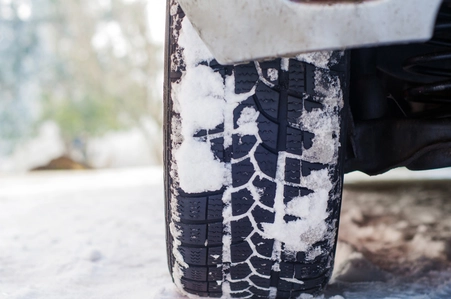A vehicle’s history report is one of the best tools you can have in your “Car Buying Toolbox” if you are in the market for a great dependable pre-owned car. A vehicle history report provides lots of information about a car’s ownership, accident history, title status, mileage, and more. It is just like a window into the car’s past and it provides a wealth of information to you. In order to pull a history report on any car, you just need to have that car’s Vehicle Identification Number (VIN). Don Ayres Acura supplies one for every used car. The VIN number can be found at the corner of the dashboard where it meets the windshield. If the VIN cannot be found there, open the driver's side door and look at the door post (where the door latches when it is closed). This article will highlight the different types of information you can find in a vehicle’s history report.
- Title History – A car’s title information can tell you a lot about its history. Vehicle history reports should show if the title is branded. Branding indicates a number of issues with the car – such as how it was used or if it was totaled and rebuilt. A salvage title means that an auto insurance company determined it was not economically viable to repair a car and declared it a total loss. Later, repairs were made that were sufficient to return the car to the road. When the automobile is re-titled, it is branded with "salvage" on the document. Other title brands to be mindful of include those for flood damage, fire damage, hail damage, police use, or taxi use.
- Selling/Owner History – A comprehensive vehicle history report will show where the car originated from as well as all owners it has had. Cars with fewer owners are typically more valuable than one with multiple owners.
- Service History – A pre-owned car with well-documented service history is also more valuable than one without. It shows that the owner(s) have been diligent with maintenance and repairs. The car’s history report should show when and where major periodic maintenance and other repairs were performed. Not all service facilities report on the vehicles they work on, however, so it’s still important to request service records.
- Register & Inspection Information – Many states require emissions, safety, or other motor vehicle inspections to be performed on vehicles and every state requires registration of vehicles. These will all show up on a vehicle’s history report.
- Open Recalls – Notifications are sent out by carmakers about any recalls on their vehicles. If an owner has this repair done, it will show on the history report. A comprehensive vehicle history report will show what recalls have been issued by the vehicle’s manufacturer, and whether or not the recall has been repaired.
- Accidents – One of the main reasons you want to get a car’s history report is to find out if it has been in any wrecks and suffered damage because of that wreck. Data from state motor vehicle departments (DMVs), insurance companies, collision repair shops, and law enforcement agencies are gathered to list any serious collisions a car has been in. In many cases, severe structural damage and airbag deployments are listed. If this is the case, you will want to have an independent mechanic check the quality of repairs and look for additional structural issues.
- Other Damage – Fire, flood, or hail damage are some of the other factors that will show up as damage on the car’s history report. A vehicle history report or a VIN check from the National Insurance Crime Bureau (NICB) can also tell you if a vehicle has been reported stolen but not recovered.
You can ask for a vehicle history report from any car salesman. Many dealers, large and small, offer them for free. If they don’t offer them, you can always get them from any of the car reporting companies like Carfax or AutoCheck. Some lenders will provide this report as well, so make sure to check with your bank or lending institution before you buy one on your own. The information you find on a vehicle’s history report can be most helpful. Use all the information on the report to make the best decision for you.












